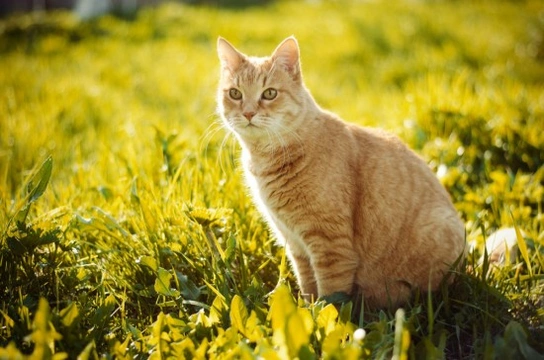Pets
Pets for studWanted petsBreedersAccessories & services
Knowledge hub
Support
Support & safety portal
Pancreatitis in cats
The term “pancreatitis” is used to refer to an inflammation of the pancreas, which occurs when enzymes created by the pancreas to help to digest food become activated within the pancreas itself, rather than in the small intestine where it should occur. This then causes inflammation of the pancreas itself and also potentially the liver, causing pain, discomfort and even long term damage.
Pancreatitis can affect a wide range of animals, including people, dogs, and cats. Pancreatitis in cats can be hard to identify, as the symptoms tend to be generalised and much more subtle than that of dogs suffering from the same condition. Pancreatitis in cats may be either acute (arise suddenly and become pronounced quickly) or chronic (progressive or recurrent). Pancreatitis in cats is a serious condition, which can develop quickly and may prove fatal if left untreated.
Do you know how to spot the signs of pancreatitis in cats, and how it is treated? Read on to find out more.
What is the pancreas and what does it do?
The pancreas is a glandular organ located within the digestive system, which is responsible for producing a range of important hormones such as insulin and glucagon. It also plays an important role in digestion, secreting digestive juice that help to break down carbs, proteins and other compounds found in food. Pancreatitis affects the pancreas’s ability to do these things and upsets the normal functions of the pancreas, leading to inflammation, pain, digestive upset and sometimes, permanent damage to the pancreas and possibly the liver.
What causes pancreatitis in cats?
A lot of research and discussion has gone into trying to definitively identify the cause or causes of pancreatitis in cats, without any firm consensus of opinion having been reached. Sometimes pancreatitis can be directly traced back to injury or damage to the pancreas, exposure to toxins such as pesticides, or an infection.
Some medications can also trigger pancreatitis in a small percentage of cats, including diuretics, phenobarbital and catabolic steroids. It is thought that some cat breeds may have a heightened genetic predisposition to pancreatitis, such as the Siamese cat and some other oriental breeds.
What are the symptoms of pancreatitis in cats?
Oftentimes, cats with pancreatitis will not display many symptoms, and the outward manifestations of pancreatitis are not as pronounced in cats as they are in dogs. Dogs will usually display significant digestive pain and discomfort, often accompanied with frequent vomiting, whereas cats may show a range of less pronounced symptoms, or even none at all.
Some of the signs and symptoms of feline pancreatitis to be on the lookout for include:
- Lethargy and general lack of energy
- Dehydration
- Lack of appetite and disinterest in food
- A slightly tender abdomen
- Vomiting in some cases (but the absence of vomiting should not be taken as the absence of pancreatitis)
- A lower than normal temperature during the early stages of the condition, which can progress to an elevated temperature or fever later on
Diagnosing pancreatitis in cats
As cats often show few symptoms of illness when suffering from pancreatitis, diagnosis can be tricky. Your vet will take a complete history of your cat’s health and lifestyle, and perform a physical examination to rule out any other potential problems. Then, in order to reach a definitive diagnosis, your vet may perform one or more of the following procedures:
- Taking a blood sample and testing for the levels of pancreatic enzymes in the blood
- Taking a urine sample for analysis
- Performing an investigative biopsy
- X-ray examination
- Ultrasound examination
How is feline pancreatitis treated?
The treatment of pancreatitis can be complex, and may require a multi-dimensional approach. IV fluid therapy and monitoring of electrolyte levels is necessary, and in some cases, IV feeding may be required too if vomiting is persistent and extreme. Medications to stimulate the blood flow, such as dopamine, may be administered, as well as medications to suppress vomiting and manage any pain that accompanies the condition.
Acute pancreatitis that is particularly severe can also affect the liver and may lead to liver failure, and so the administration of plasma, and possibly dialysis (which is usually performed in a specially equipped veterinary referral clinic) may be indicated too.
Pancreatitis is a serious condition in cats, and a fast diagnosis and commencing with treatment promptly are important to give your cat the best chance of recovery.
The prognosis for cats with pancreatitis
How well or poorly any given cat responds to treatment is something that cannot accurately be predicted remotely. If your cat is in otherwise good health, relatively young, and receives treatment promptly, then they stand a good chance of making a full recovery in relatively short order. If your cat’s pancreatitis is severe or has been developing for some time, further complications such as liver disease and eventual liver failure may accompany pancreatitis, which in turn can be life threatening and challenging to treat.
Because the symptoms of pancreatitis in cats are subtle, cases are often not identified and diagnosed until they are quite pronounced. It is important to take your cat along to the vet at the first sign of symptoms, as your cat may be suffering from pancreatitis without actually displaying many outward signs of pain or discomfort during the initial stages.



